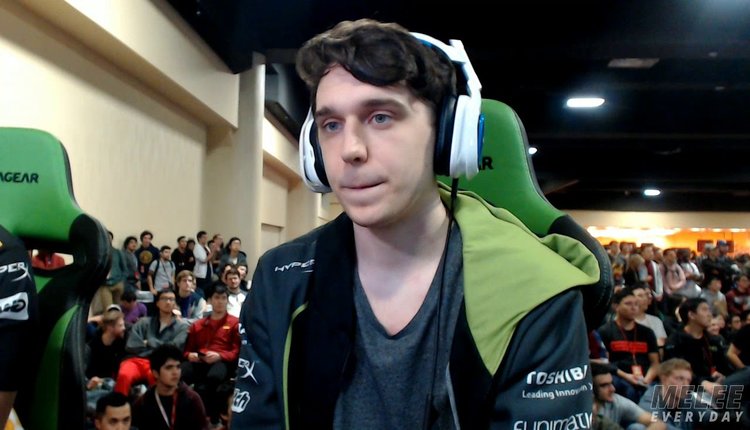Healthy Mind, Healthy Game: Mental Health and E-Sports
In early August of 2018, competitive Super Smash Bros. player Justin “Plup” McGrath froze up in a competition during Evo 2018, causing him to lose the game. One viewer took to Reddit, publicly posting “someone take Plup to the doc asap.” Several days after the competition, Plup tweeted that “I had a panic attack for the first time in my life during [Evo 2018], and I’ve been a mess ever since.”
Though he added that he was now handling it with prescribed medication, the incident was rightful cause for conversation surrounding the mental health of competitive gamers. With esports growing into what has been called “an organized industry with teams, tournaments, world championships, and significant prize money,” the pressure on players to compete and win can be heavy. Just as in other public arenas, mental health can be poorly affected due to pressure within the e-sports world.
Considering the growing epidemic surrounding mental health in America, we need to accept that our gaming heroes are not exempt from mental illness. The devotion to competitive e-sports is rapidly growing, and if players don’t know how to handle the stress that comes with the territory, they may find themselves in dire straits.
The Growing Popularity of E-Sports
The game League of Legends (LoL) was revolutionary for its addictive community gameplay and accessible UX/UI design — a key component in design. Due to these factors, it was one of the first games to bring e-sports into the public spotlight. Viewers from around the world tune into LoL competitions, and the game has reached levels of exposure that weren’t previously thought possible.
With the recent news that Riot Games will enlist Nielsen to measure the competitions, the reach of e-sports is sure to increase. The hope of this decision was for advertisers to see the revenue possibilities of supporting e-sports competitions and to begin investing in them. As if that wasn’t astonishing enough, there has been significant talk of e-sports becoming an Olympic event.
With new eyes and money being thrust upon the sport, a larger culture of viewership will develop around it. The way players will handle this growth of popularity is uncertain. However considering potential toxic elements, some negative side effects are possible.
Competitive Pressure and Online Toxicity
Increased celebrity pressure and toxic online push back are possible results of increased online esports viewership. If gamers become larger public figures, they could find themselves under immense stress. There is already a considerable amount of this with how esports has grown thus far. A writer from ESPN explained it like this:
“There is no other sport in the world in which one day you can be a teenager playing a game by yourself, and the next day, because someone scouted you from your online account, you’re thrown onto a stage for millions to criticize. There’s little to no assimilation period. There’s no road map for how to deal with the criticism. There’s just you, on the stage with four teammates, facing down the biggest moment of your life with no lifeline. And the next day, and almost every day that follows, you do it all over again.”
Additionally, as seen with numerous examples of public figures deleting their social media accounts in response to harassment, the online community has a knack for being extremely toxic. Some have even linked the small number of professional female gamers to the greater amounts of aggression they receive during gameplay. These deep levels of toxicity add extra pressure to competitors, and within the realm of e-sports, that kind of scrutiny can be detrimental.
A Call for Action
With the American mental illness epidemic, it would be unwise to overlook the humanity of these gamers. Thankfully, some are taking notice. Right now, we’re seeing a lot of e-sports players experiencing burnout, and their team managers are allowing them to return home mid-season to recover.
Yet, some players are also very stubborn. As stated by GeekWire, “any push for better mental health in e-sports has to start with leagues and game publishers because most players and teams are in it to win as many games as they can.” The competitive spirit can sometimes cause competitors to ignore their own mental needs. But doing so could have serious consequences, for gamers individually as well as their careers.

Professional gamers will spend up to 80 hours a week gaming sometimes, which can take an enormous mental toll. The possible negative repercussions of this — fatigue, stress, anxiety, and depression — should be seen as a call to action for the gaming community and esports industry. Will they choose to do more? Will they enlist the help of counselors, ensure players are healthy, and encourage mental wellness? Only time will tell.
Mental health is important for gamers to take care of, as exemplified by Plup in Evo 2018. Pro gamers tend to push themselves too hard, and the high-stakes world of e-sports can be intimidating, to say the least. Avoiding toxic elements of online culture and popularity to focus on self-care may end up saving gamers from severe mental anguish.

